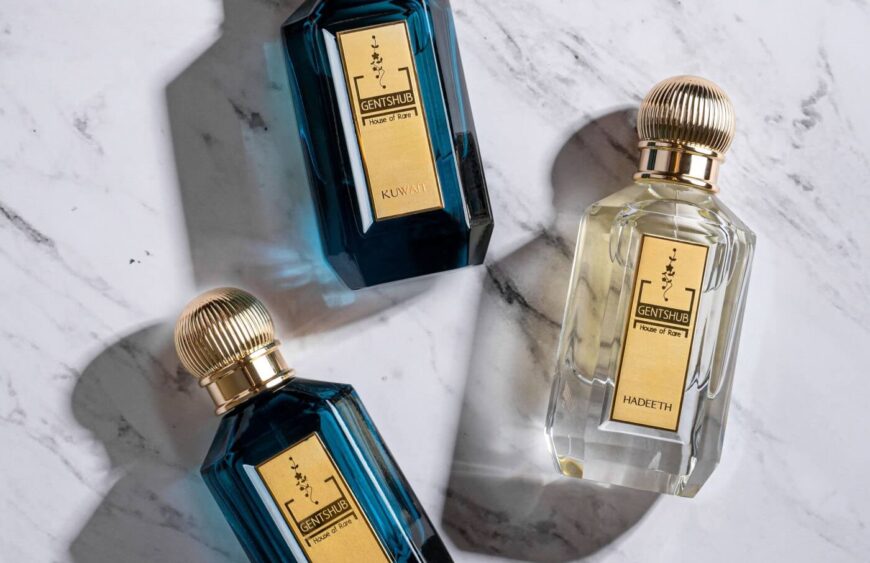Introduction: The Rise of Natural Perfumes
Perfume has always been more than just a scent—it’s an expression of personality, an emotional trigger, and a symbol of luxury. But over the years, the perfume industry has faced growing criticism for its heavy reliance on synthetic chemicals. These artificial fragrances, while inexpensive to produce, have raised concerns about allergies, skin irritation, and long-term health risks.
Enter the world of natural perfumes. Made with essential oils, plant extracts, resins, and botanicals, natural perfumes are gaining popularity across the globe. Consumers today are more health-conscious, eco-aware, and selective about what they apply to their skin. And for good reason—the natural ingredients in perfumes extend far beyond just fragrance.
Natural perfumes are:
-
Safer for sensitive skin
-
Packed with therapeutic properties
-
Environmentally sustainable
-
Richer and more complex in aroma
-
Longer-lasting when blended with body chemistry
In countries like the UAE, where the art of perfumery is deeply rooted in tradition, natural perfumes have always been a part of cultural heritage. Scents like oud, rose, amber, and sandalwood symbolize luxury and spirituality while offering therapeutic and long-lasting effects. Now, modern consumers worldwide are rediscovering these ancient treasures.
Benefits of Natural Ingredients in Perfumes
Switching to natural perfumes is not just a lifestyle choice—it’s a healthier, eco-friendly, and luxurious alternative to synthetic fragrances. The key benefits include:
-
No harsh chemicals that irritate the skin.
-
Skin nourishment through natural oils and extracts.
-
Therapeutic aromatherapy benefits that uplift mood.
-
Eco-conscious sourcing and biodegradability.
-
Higher fragrance quality with complex natural notes.
-
Longer-lasting scents due to interaction with body oils.
Let’s explore each of these advantages in detail.
No Harsh Chemicals in Perfumes
One of the most obvious yet overlooked advantages of natural perfumes is the absence of harsh chemicals. Many commercial perfumes are created with synthetic compounds such as phthalates, parabens, aldehydes, and artificial fixatives. These compounds may provide strong and lasting scents, but they come with significant downsides.
Gentle on Skin
Natural perfumes are formulated with essential oils and botanical extracts that are much gentler compared to synthetic chemicals. People with sensitive skin, eczema, or allergies often experience irritation from artificial fragrances, but natural perfumes reduce that risk considerably.
Free from Allergens
Synthetic chemicals can trigger respiratory issues, headaches, or allergic reactions in some individuals. On the other hand, natural ingredients like lavender, rose, and sandalwood are not only safer but also have calming properties.
Safer for Daily Use
Perfume isn’t something we wear once in a while—it’s often applied daily, sometimes multiple times. Continuous exposure to synthetic chemicals can accumulate in the body over time. Natural perfumes, however, allow you to indulge in your signature scent without worry.
➡️ If you’re looking for a safe daily perfume in the UAE, GentsHub offers a wide range of natural perfumes free from harmful chemicals.
Healthier for the Skin
Perfume doesn’t just linger in the air; it interacts with your skin. That’s why natural perfumes are a healthier choice—they nourish, moisturize, and even heal.
Nourishment
Natural ingredients like jojoba oil, shea butter, and coconut oil are commonly used in perfume bases. These oils are rich in vitamins and antioxidants that help keep the skin healthy and radiant.
Moisturization
Unlike alcohol-heavy synthetic perfumes that dry out the skin, natural perfumes often contain carrier oils that keep the skin soft and hydrated.
Skin Healing Effects
Certain essential oils, such as chamomile, rosehip, and tea tree, have anti-inflammatory properties that can soothe redness, irritation, and minor skin conditions. This makes natural perfumes not just safe but actually beneficial for your skin.
💡 Pro Tip: Applying natural perfumes directly to pulse points like wrists and behind the ears not only enhances the fragrance but also maximizes the skin benefits.
Therapeutic Benefits of Natural Perfumes
Perfumes do more than make us smell good—they affect our mood, emotions, and even physical well-being. This is where natural perfumes excel because they incorporate essential oils used in aromatherapy.
Aromatherapy for Stress Relief
Scents like lavender, chamomile, and bergamot are scientifically proven to reduce stress and promote relaxation. Wearing a perfume infused with these oils can act as a natural stress reliever throughout your day.
Boosting Emotional Balance
Natural perfumes can instantly uplift your spirits. For example, rose oil is linked to improved self-confidence and reduced anxiety, while jasmine is known to stimulate feelings of joy and energy.
Supporting Physical Health
Some natural perfume ingredients even offer physical benefits. For instance:
-
Peppermint oil can ease headaches.
-
Eucalyptus oil helps clear nasal congestion.
-
Clary sage oil may reduce muscle tension.
So when you choose natural perfumes, you’re not just applying a fragrance—you’re engaging in a form of daily aromatherapy.
Essential Oils in Natural Perfumes
Essential oils are the backbone of natural perfumery, each offering unique benefits.
-
Lavender → Calming, relieves anxiety, improves sleep.
-
Chamomile → Reduces stress, soothes skin, anti-inflammatory.
-
الازهار → Antioxidant-rich, emotionally uplifting, skin-nourishing.
-
خشب الصندل → Grounding, meditative, enhances spiritual focus.
-
Jasmine → Exotic, sensual, boosts mood and energy.
-
فانيليا → Comforting, warm, helps reduce stress.
Unlike synthetic perfumes that often have a “flat” smell, these oils create layered, evolving scents that feel more alive and natural.
Environmentally Friendly Perfumes
Perfume isn’t just personal—it’s environmental. Choosing perfumes with natural ingredients also means making a sustainable choice.
Eco-Sourcing
Natural ingredients are often sourced from sustainable farms that prioritize ethical harvesting and biodiversity. For example, responsibly sourced oud wood supports forest conservation.
Biodegradable Ingredients
Unlike synthetic compounds that pollute waterways and linger in the environment, natural perfumes break down safely and don’t contribute to long-term pollution.
Sustainable Farming Practices
Ingredients like rose, lavender, and jasmine are often grown in ways that support local farmers and communities, especially in regions like the Middle East and South Asia.
By choosing natural perfumes, you’re not just treating yourself—you’re helping protect the planet.
Higher Quality Scents
One of the most remarkable benefits of natural ingredients in perfumes is the quality of scent they provide. Unlike synthetic perfumes, which often rely on chemical duplication of natural aromas, natural perfumes capture the true essence of botanicals and resins.
Complexity of Natural Notes
Synthetic perfumes may smell strong initially but tend to remain “flat” or one-dimensional. In contrast, natural perfumes evolve over time. Essential oils contain hundreds of chemical compounds that interact in unique ways, giving natural perfumes a rich complexity.
For example:
-
A rose essential oil has over 300 different compounds, each contributing to its layered aroma.
-
Oud wood develops from smoky, woody tones to sweet, resinous depth over hours.
This complexity is what makes natural perfumes feel more luxurious and authentic.
Luxury Experience
Perfume is often seen as a luxury product, and natural perfumes uphold that status beautifully. Ingredients like jasmine absolute, oud, and ambergris are among the most precious in the fragrance world, often more expensive than gold by weight.
When you wear a natural perfume, you’re experiencing something rare, refined, and deeply personal.
Longer-Lasting Fragrance
A common myth is that synthetic perfumes last longer than natural ones. In reality, natural perfumes can provide longer-lasting effects because they interact with the body’s natural oils.
Interaction with Skin Chemistry
When applied, natural ingredients blend with your skin’s oils, creating a fragrance that is unique to you. This personal chemistry allows the scent to develop slowly and last throughout the day.
Personalized Scent Signature
No two people smell exactly the same when wearing the same natural perfume. That’s because essential oils respond differently to individual body chemistry. This means you get a signature scent that’s uniquely yours.
Subtle, Not Overpowering
While synthetic perfumes often fade suddenly, natural perfumes gradually transform. The scent lingers subtly, making it pleasant rather than overwhelming.
💡 Tip: Apply natural perfume to pulse points (wrists, neck, behind ears) and lightly on hair to enhance its longevity.
Emotional Connection to Natural Scents
Fragrances are strongly linked to memory and emotions. Natural perfumes, with their authentic botanicals, evoke deeper and more personal responses than synthetic scents.
Memory Triggers
Scents like rose, sandalwood, and oud can trigger powerful memories—of loved ones, travels, or cultural rituals.
Mood Boosters
Natural perfumes don’t just smell good; they can uplift moods, increase focus, and reduce fatigue. For example, citrus-based natural perfumes are known to boost energy and motivation.
This emotional depth is why many consider natural perfumes more than just fragrances—they’re companions for well-being.
Cultural Heritage of Natural Perfumes
Perfume is as old as civilization, and throughout history, natural ingredients have always been at the heart of perfumery.
Ancient Egypt
The Egyptians used perfumes made from myrrh, frankincense, and lotus flowers in religious ceremonies and daily life.
Arabian Perfume Traditions
In the Middle East, perfumes like oud, musk, and amber have been central to culture for centuries. The tradition of burning bakhoor (scented wood chips) and applying natural oils is still practiced today.
Ayurveda and Natural Healing
In India, natural perfumes made from sandalwood, vetiver, and jasmine were used not only for fragrance but also for medicinal and spiritual healing.
This cultural heritage is being revived in modern times, where natural perfumes are once again celebrated for their authenticity.
Difference Between Natural and Synthetic Perfumes
| Feature | Natural Perfumes | Synthetic Perfumes |
|---|---|---|
| Ingredients | Essential oils, plant extracts, resins | Lab-made chemicals |
| Skin Effects | Nourishing, moisturizing, soothing | Can cause dryness or irritation |
| Longevity | Evolves with skin chemistry, subtle | Strong at first, fades quickly |
| Environmental Impact | Biodegradable, eco-friendly | Polluting, made from petroleum |
| Emotional Connection | Therapeutic, mood-enhancing | Often artificial, less depth |
This comparison makes it clear why natural perfumes are becoming the preferred choice for conscious consumers.
Why People Are Switching to Natural Perfumes
The modern perfume market is witnessing a huge shift as consumers demand transparency, authenticity, and sustainability. Some reasons include:
-
Health-conscious choices → avoiding synthetic allergens.
-
Eco-friendly lifestyle → reducing environmental impact.
-
Desire for uniqueness → personalized, natural scents.
-
Cultural revival → rediscovering traditional perfumery.
This shift is especially evident in the UAE, where Arabic perfumes made from oud, rose, and amber continue to dominate luxury fragrance markets.
Popular Natural Ingredients in Perfumes
Some of the most sought-after natural ingredients include:
-
العود (عود طبيعي - عود مبخر- عود معطر ) → Smoky, woody, luxurious.
-
الازهار → Romantic, floral, uplifting.
-
Jasmine → Exotic, sensual, calming.
-
خشب الصندل → Warm, grounding, spiritual.
-
فانيليا → Sweet, comforting, cozy.
-
الباتشولي → Earthy, rich, balancing.
Each ingredient has its own story, heritage, and healing property, making natural perfumes a sensory journey.
What Happens If Natural Ingredients Are Ignored?
Ignoring natural ingredients in perfumes has serious consequences:
-
Environmental harm → Synthetic perfumes release VOCs (volatile organic compounds) that pollute air and water.
-
Climate impact → Many synthetics are derived from petroleum, a non-renewable resource.
-
Health risks → Long-term use of synthetic chemicals may lead to skin problems, respiratory issues, or headaches.
By contrast, natural ingredients are biodegradable, renewable, and safer for humans and the planet.
FAQs About Natural Perfumes
Are natural perfumes safe for sensitive skin?
Yes! Natural perfumes are free from harsh chemicals, making them safer for sensitive or allergy-prone skin.
Do natural perfumes last as long as synthetic ones?
Absolutely. Natural perfumes last longer because they blend with your skin’s natural oils, creating a personalized scent that lingers.
Why are natural perfumes more expensive?
Natural ingredients like oud, rose, and jasmine are rare and require sustainable harvesting, making them more valuable.
Can natural perfumes provide health benefits?
Yes. Many contain essential oils that reduce stress, improve mood, and even help with minor physical ailments.
Are natural perfumes environmentally friendly?
Yes. They are biodegradable, sustainably sourced, and do not pollute the environment like synthetic fragrances.
Where can I buy natural perfumes in UAE?
You can explore GentsHub collection of long-lasting natural perfumes for men and women, designed to be safe, luxurious, and eco-conscious.
Conclusion: Experience the Difference of Natural Perfumes
Perfume is not just about smelling good—it’s about feeling good, living sustainably, and connecting with tradition. The benefits of natural ingredients in perfumes are countless: they’re skin-friendly, therapeutic, environmentally conscious, luxurious, and long-lasting.
If you’re searching for a fragrance that embodies all these qualities, it’s time to explore natural perfumes in UAE
at GentsHub. From exotic oud to romantic rose, our collection offers scents that are elegant, unique, and rooted in nature.
Choose natural. Smell divine. Live consciously.
























